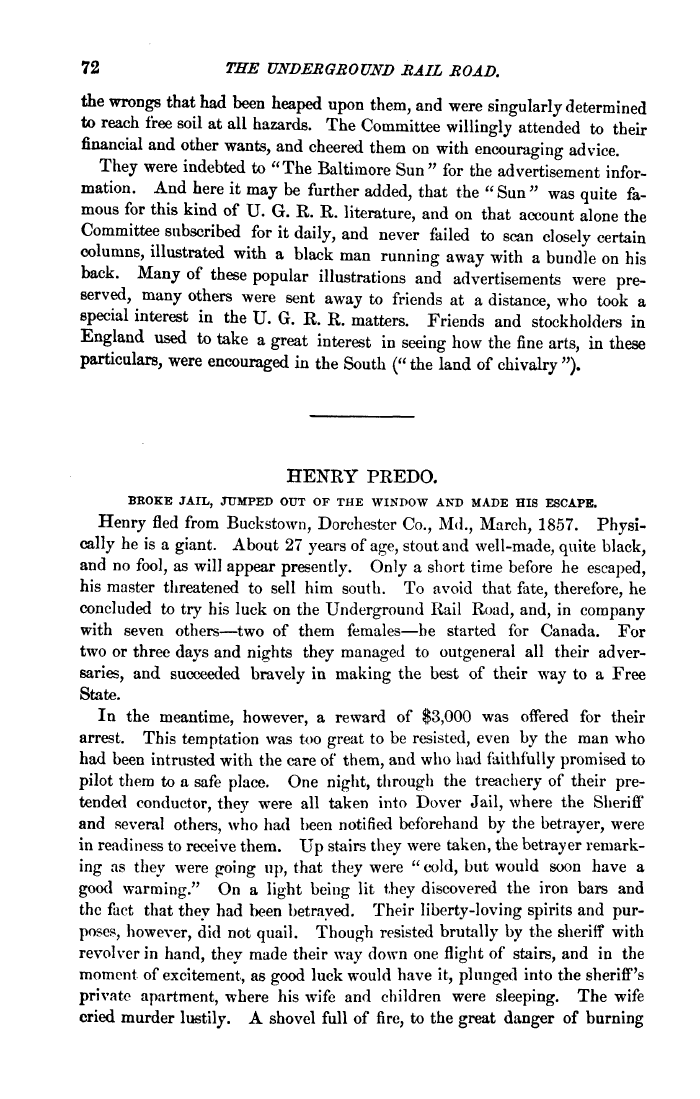 |
||||
 |
||||
| 72 THE UNDERGROUND RAIL ROAD. the wrongs that had been heaped upon them, and were singularly determined to reach free soil at all hazards. The Committee willingly attended to their financial and other wants, and cheered them on with encouraging advice. They were indebted to "The Baltimore Sun" for the advertisement information. And here it may be further added, that the "Sun" was quite famous for this kind of U. G. R. R. literature, and on that account alone the Committee subscribed for it daily, and never failed to scan closely certain columns, illustrated with a black man running away with a bundle on his back. Many of these popular illustrations and advertisements were preserved, many others were sent away to friends at a distance, who took a special interest in the U. G. R. R. matters. Friends and stockholders in England used to take a great interest in seeing how the fine arts, in these particulars, were encouraged in the South (" the land of chivalry "). HENRY PREDO. BROKE JAIL, JUMPED OUT OF THE WINDOW AND MADE HIS ESCAPE. Henry fled from Buckstown, Dorchester Co., Md., March, 1857. Physically he is a giant. About 27 years of age, stout and well-made, quite black, and no fool, as will appear presently. Only a short time before he escaped, his master threatened to sell him south. To avoid that fate, therefore, he concluded to try his luck on the Underground Rail Road, and, in company with seven others—two of them females—he started for Canada. For two or three days and nights they managed to outgeneral all their adversaries, and succeeded bravely in making the best of their way to a Free State. In the meantime, however, a reward of $3,000 was offered for their arrest. This temptation was too great to be resisted, even by the man who had been intrusted with the care of them, and who had faithfully promised to pilot them to a safe place. One night, through the treachery of their pretended conductor, they were all taken into Dover Jail, where the Sheriff and several others, who had been notified beforehand by the betrayer, were in readiness to receive them. Up stairs they were taken, the betrayer remarking as they were Łoing up, that they were " cold, but would soon have a good warming." On a light being lit they discovered the iron bars and the fact that they had been betrayed. Their liberty-loving spirits and purposes, however, did not quail. Though resisted brutally by the sheriff with revolver in hand, they made their way down one flight of stairs, and in the moment of excitement, as good luck would have it, plunged into the sheriff's private apartment, where his wife and children were sleeping. The wife cried murder lustily. A shovel full of fire, to the great danger of burning |